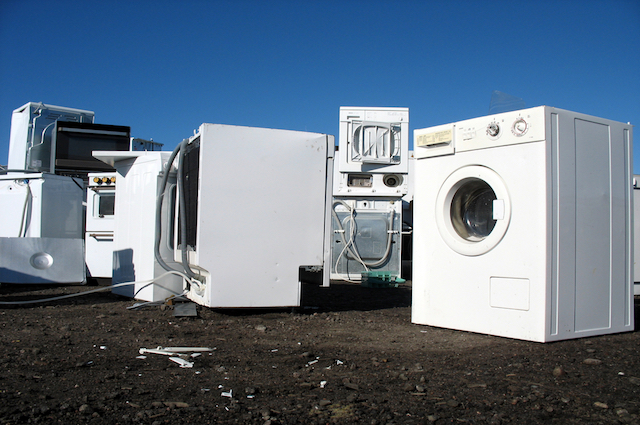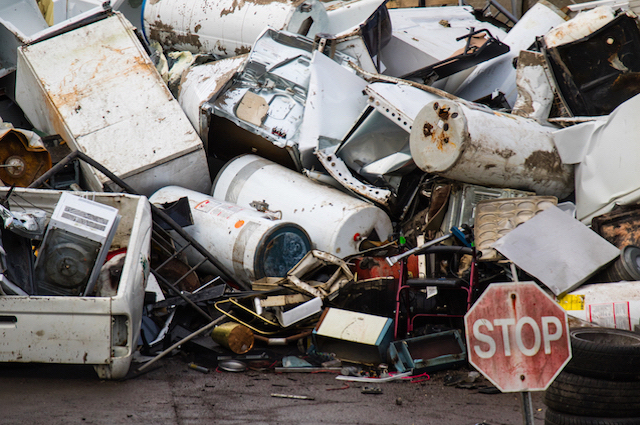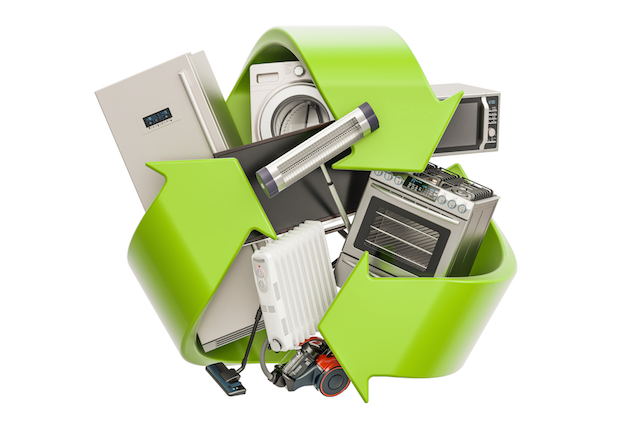The Responsible Guide to Recycling Your Old Appliances
Before you decide to chuck out your old fridge, washing machine or DVD player, you should first consider whether it could be reused, resold or recycled. Waste might be a by-product of modern living, but it’s also a growing problem. In fact you may be surprised at the impact waste has in Australia, as well as learn ways to responsibly dispose of your old appliances.
The current impact of white goods in Australia
Australia’s growth in income and wealth over the past few decades has created a large increase in the purchasing and disposal of white goods. These include large electrical items such as washing machines, clothes dryers, air conditioners, water heaters, ovens and stoves. Unfortunately, waste generation can have significant environmental, social, and economic impacts.
The good news is, local governments across Australia have recognised the impacts of current consumption patterns and have implemented policies and targets for reducing waste. However, there is no national recycling scheme for electrical appliances as a whole. Therefore, it takes individual research and action to make a change.
According to the Choosi Clutter Report 2017, 19.5% of Australians consider old appliances and electronics as the most ridiculous items they store. So if you’ve got an unwanted fridge, broken dishwasher or other appliance in storage – and you want to make a positive impact – it’s time to think about responsible waste management.
Recycling old appliances
Here’s the truth – electrical appliances contain a broad range of materials that can cause environmental contamination in landfill. But nearly 100% of these materials, if properly recycled, can be recovered for reuse. This means you can reduce the waste going to landfill, conserve resources, and reduce the amount of carbon emissions created in the production of new appliances.
So, what are your best recycling options? This varies depending on where you live – so your first port of call is to always check in with your local council to find out if there are any commercial recyclers, e-waste organisations, or resource recovery centres in your area.
Another option is to speak directly with the manufacturers and retailers. Just ask if they will remove your old appliance if you buy a new one. This service is sometimes included in the delivery charge, or it might cost you extra. Either way, the retailer will often sell the items to a metal recycler or resource recovery centre.
You can also sell your old items to second-hand dealers, who’ll repair them and resell them. Or, if the items are still in working order, simply give them to friends, family, or those in need.
Selling old appliances
The Choosi Clutter Report reveals that 45.2% of Australians have used the second hand economy online to sell or trade items they consider as clutter. Among those people, 49.8% say they utilised Gumtree, while 28.2% cite eBay and 17.4% use Facebook.
Using online platforms to sell your old appliances is a sign of the times. It’s an easy, quick and effective way to raise funds for your next purchase, as well as reduce waste. Whether you choose to sell via Facebook, Gumtree, eBay or some other method, there are a few things to consider.
Firstly, be honest about the condition of your appliance. People don’t like being lied to, so make sure you describe in detail any scratches or dents, as well as how old the appliance is. It’s also important to make sure it’s safe to use and up to code. To improve the likelihood of a sale, make sure you also take good pictures on a decent camera, price the item fairly, specify your location and delivery options, list the item’s specifications, and be clear that you’re willing to negotiate.
Not selling online? Then you can also put on a garage sale, rent a booth at your local market, sell your items to a local appliance store, or get in touch with a local scrap metal recyclers.
Ultimately, there are many ways to dispose of your waste that don’t have a negative impact. And while it can be easy to just to throw things out, all it takes is a little research and action to do the right thing.






Sorry, the comment form is closed at this time.